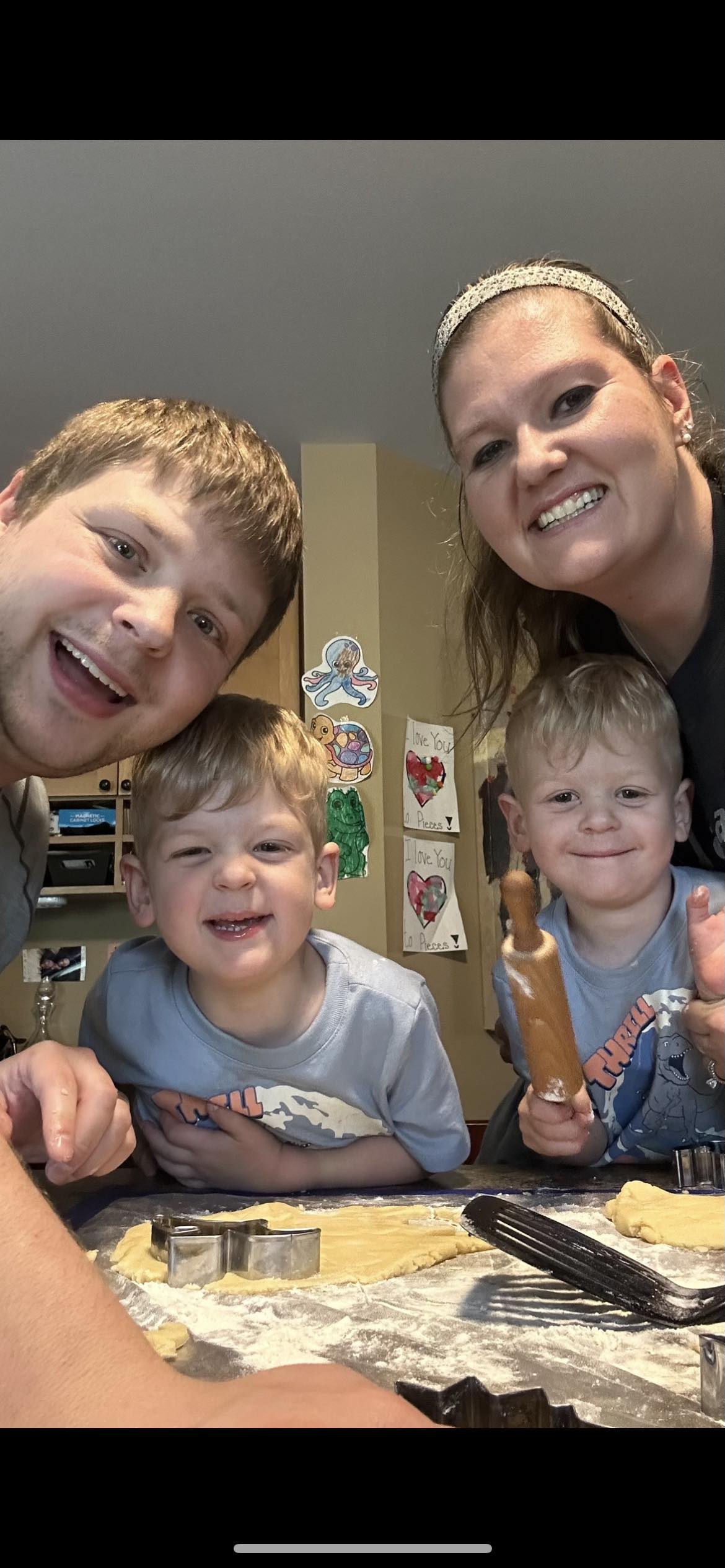Often, couples follow a natural progression during the course of their relationship. You fall in love, you get married, and you have kids. Isn’t that how the kid’s nursery rhyme goes? “First comes love, then comes marriage, then comes baby in a baby carriage.” Of course, some couples may do things in a different order, and there is absolutely no right or wrong timeline.
But what happens when you and your husband follow that very traditional timeline, and then your doctors tell you that you were unable to get to the baby part without “significant medical intervention”? I remember that particular doctor’s appointment like it was yesterday. My husband and I had been actively trying for three years to conceive without any success, and we were meeting with my OBGYN to discuss next steps. After a long and drawn-out series of procedures, tests, and blood work, I was diagnosed with “unexplained infertility.” This diagnosis is given when a fertility specialist can’t identify a specific cause of infertility after a comprehensive evaluation and testing process. I can remember how devastated I was—not only could I not get pregnant naturally, but now no one could tell me why. I mourned the fact that starting our family would most likely take place in a medical office rather than in the intimacy of our own bedroom. I grieved the spontaneity and the sense of surprise and excitement that can come from a natural pregnancy. Most importantly, I dreaded the cost and the financial toll that this next chapter would take on our savings.
I had become part of a very large statistic in America that not many people are willing to talk about. One out of eight women of reproductive age struggles with infertility. According to the CDC, as of 2024, approximately 7.4 million women have received help with infertility in their lifetime. So, what happened next? I received my diagnosis, and my husband and I started down the path of various infertility treatments. We started each menstrual cycle with a plan and with hope that this cycle would be the one, and yet spent many months wishing for different outcomes.
The emotional toll of battling infertility is immense. I remember the mixed feelings I had when friends and family announced their pregnancies. I wanted to be genuinely happy for them, but it was difficult to suppress the inner turmoil and sadness, wondering why it couldn’t be that easy for us. Every announcement was a reminder of our struggle and brought up the painful question: “When will it be our turn?” I also struggled with the feeling that there was something fundamentally wrong with me because my body couldn’t do the one thing it was designed to do as a woman. Seeing mothers with their babies out and about filled me with an unexplainable sense of longing and sadness, not knowing when or if I would ever have that opportunity myself.
First, we tried three cycles of Clomid, a medication commonly used to treat infertility in women. When those cycles failed, we tried three intrauterine insemination (IUI) cycles, a fertility treatment that involves placing sperm directly into a woman’s uterus to facilitate fertilization. When all of those cycles failed, we moved on to in vitro fertilization (IVF), a process where an egg is fertilized by sperm outside the body, and then the resulting embryo is implanted in the uterus. After eight total rounds of infertility procedures spanning over the course of three years, we finally got to celebrate a success. Crazy enough, that success ended up turning into TWO healthy baby boys.
Our sweet sons are three years old now, and we recently decided to go back through the IVF process to see if we could complete our family with a little baby girl.


Finding Hope and Offering Advice
Reflecting on our journey, there were many moments of doubt and despair, but there were also lessons learned and strengths discovered. If you are beginning your journey to start a family and are facing infertility, here are a few pieces of advice that I hope can provide some comfort and guidance:
- Seek Support: Don’t go through this alone. Lean on your partner, family, friends, or join support groups where you can share your experiences with others who understand.
- Stay Informed: Educate yourself about your options. The more you know about treatments like Clomid, IUI, and IVF, the more empowered you will feel to make decisions that are right for you.
- Take Care of Yourself: The emotional and physical toll of infertility treatments can be exhausting. Make sure to prioritize self-care and seek professional help if needed to navigate the emotional ups and downs.
- Be Patient and Hopeful: Fertility treatments can be a long process with many setbacks. Hold onto hope and remember that every step brings you closer to your goal, even if it doesn’t always feel that way.
- Celebrate Small Victories: Whether it’s a successful treatment cycle or simply making it through a tough day, recognize and celebrate the small wins along the way.
Infertility is a challenging journey, but it doesn’t define you. With persistence, support, and the right medical help, many couples find their path to parenthood. Keep believing in your dream, and know that you are not alone.










